A minor plaintiff, who had been taking riding lessons from an experienced equestrian and horse farm owner, arranged to have a “free ride”, without any supervision, on a horse she had successfully ridden before. Unfortunately, she fell from the horse when attempting to dismount. The horse then stepped on her, causing serious injuries.
The trial court granted summary judgment to the horse farm based on the statutory immunity afforded to those involved in equine activities “for an injury or the death of a participant resulting from the inherent risks of equine activities.” RSA 508:19, II. Inherent risks were defined to include such things as a horse’s propensity to act in dangerous ways, it’s propensity to react unpredictably to sudden movements or unfamiliar persons, the hazards of uneven terrain, and the potential for a participant to act in a negligent manner around horses.
The Supreme Court on appeal rejected various arguments advanced by the plaintiff. First, the court found that only a narrow class of negligence actions against the equine defendant survive, e.g., when the defendant fails to reasonably determine the ability of the participant to safely take part or where the defendant acts in willful disregard for the safety of the participant, neither of which were found to apply on the facts of this case. The court found that the plain language of the statute generally immunizes defendants other than for narrowly carved out exceptions. The court also found that any negligence on the part of the plaintiff could not be reasonably foreseen and, therefore, the defendant was not obligated to take any corrective measures. In addition, the failure to ensure that there was adult supervision did not reduce the immunity afforded by the law.
Clearly the scope of the statutory immunity, which can be found in similar laws in many other states, is quite broad. Ordinary negligence claims will likely be precluded unless the plaintiff can establish that one or more narrow exceptions are supported by the facts, e.g., that the defendant provided equipment it knew was faulty and which caused the injury; that they failed to reasonably check on the participant’s equine abilities; that they knew the land being used had a dangerous latent defect for which warning signs were not posted; that they committed a willful or wanton act that caused the injury; or they intentionally injured the participant. In most cases of injuries caused by horses, the equine professional will enjoy protection.
